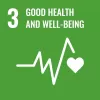Belgium
participants
Knowledge Enhancement: To provide participants with basic knowledge and understanding of first aid principles. This includes the recognition and assessment of various types of injuries and medical conditions.
Skill Development: To equip participants with practical skills in administering first aid. This involve hands-on training in techniques such as CPR (Cardiopulmonary Resuscitation), wound care, managing fractures or sprains, and dealing with choking, burns, or bleeding.
Confidence Building: To boost the confidence of participants in their ability to respond effectively in emergency situations. The workshop aims to reduce hesitation and promote decisive action in times of need.
Promotion of Safety Awareness: To increase awareness about safety practices and prevention of accidents and injuries in everyday life, both at home and in the workplace.
Emergency Preparedness: To prepare individuals to handle various emergency situations calmly and efficiently until professional medical help arrives.
Community Engagement and Responsibility: To encourage a sense of responsibility towards one’s community by being prepared to offer assistance in emergency situations.
Updating Skills and Knowledge: To provide updates on the latest first aid techniques and protocols, as these can change over time with new medical insights and advancements.
This all-encompassing first aid workshop, skillfully conducted by two proficient trainers and medical students from the University of Liege, was tailored to impart a deep understanding of first aid techniques, catering to a diverse audience. The format of the workshop was particularly beneficial for ensuring comprehensive learning.
Key Learning Points:
- Defibrillator Usage: Participants received hands-on training on the correct usage of Automated External Defibrillators (AED), a critical skill for cardiac emergencies.
- Immediate Response Reflexes: The course highlighted the significance of initial reflex actions in emergency scenarios, establishing a base for effective first aid intervention.
- Position Latérale de Sécurité (PLS): Instruction in the correct technique for placing an individual in the recovery position, crucial for people who are unconscious but breathing.
- Vital Signs Assessment: Techniques to check breathing and heartbeat, with practical training in cardiopulmonary resuscitation (CPR) and mouth-to-mouth resuscitation.
- Effective Emergency Communication: Strategies for communicating efficiently with emergency services to provide essential and accurate information quickly.
- Road Accident Response: Detailed procedures for managing car accident emergencies.
- Managing Choking Incidents: Comprehensive guidance on addressing choking emergencies, including the proper application of the Heimlich maneuver and its appropriate usage.
- Adaptation to Different Individuals: A key component of the workshop was adapting first aid techniques for different people, including pregnant women, elderly individuals, and children. This training is vital for tailoring emergency response to the specific needs and conditions of diverse individuals, ensuring effective and safe first aid provision.

